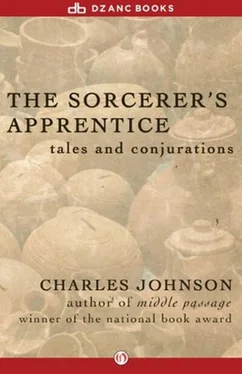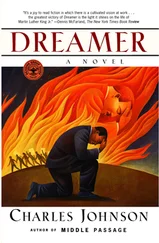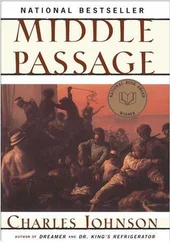Charles Johnson - Sorcerer's Apprentice
Здесь есть возможность читать онлайн «Charles Johnson - Sorcerer's Apprentice» весь текст электронной книги совершенно бесплатно (целиком полную версию без сокращений). В некоторых случаях можно слушать аудио, скачать через торрент в формате fb2 и присутствует краткое содержание. Год выпуска: 2014, Издательство: Dzanc Books, Жанр: Современная проза, на английском языке. Описание произведения, (предисловие) а так же отзывы посетителей доступны на портале библиотеки ЛибКат.
- Название:Sorcerer's Apprentice
- Автор:
- Издательство:Dzanc Books
- Жанр:
- Год:2014
- ISBN:нет данных
- Рейтинг книги:3 / 5. Голосов: 1
-
Избранное:Добавить в избранное
- Отзывы:
-
Ваша оценка:
- 60
- 1
- 2
- 3
- 4
- 5
Sorcerer's Apprentice: краткое содержание, описание и аннотация
Предлагаем к чтению аннотацию, описание, краткое содержание или предисловие (зависит от того, что написал сам автор книги «Sorcerer's Apprentice»). Если вы не нашли необходимую информацию о книге — напишите в комментариях, мы постараемся отыскать её.
Sorcerer's Apprentice — читать онлайн бесплатно полную книгу (весь текст) целиком
Ниже представлен текст книги, разбитый по страницам. Система сохранения места последней прочитанной страницы, позволяет с удобством читать онлайн бесплатно книгу «Sorcerer's Apprentice», без необходимости каждый раз заново искать на чём Вы остановились. Поставьте закладку, и сможете в любой момент перейти на страницу, на которой закончили чтение.
Интервал:
Закладка:
THE SORCERER’S APPRENTICE
There was a time, long ago, when many sorcerers lived in South Carolina, men not long from slavery who remembered the white magic of the Ekpe Cults and Cameroons, and by far the greatest of these wizards was a blacksmith named Rubin Bailey. Believing he was old, and would soon die, the Sorcerer decided to pass his learning along to an apprentice. From a family near Abbeville he selected a boy, Allan, whose father, Richard Jackson, Rubin once healed after an accident, and for this Allan loved the Sorcerer, especially the effects of his craft, which comforted the sick, held back evil, and blighted the enemies of newly freed slaves with locusts and bad health. “My house,” Richard told the wizard, “has been honored.” His son swore to serve his teacher faithfully, then those who looked to the Sorcerer, in all ways. With his father’s blessing, the boy moved his belongings into the Sorcerer’s home, a houseboat covered with strips of scrapmetal, on the river.
But Rubin Bailey’s first teachings seemed to Allan to be no teachings at all. “Bring in fresh water,” Rubin told his apprentice. “Scrape barnacles off the boat.” He never spoke of sorcery. Around the boy he tied his blacksmith’s apron, and guided his hand in hammering out the horseshoes Rubin sold in town, but not once in the first month did Rubin pass along the recipes for magic. Patiently, Allan performed these duties in perfect submission to the Sorcerer, for it seemed rude to express displeasure to a man he wished to emulate, but his heart knocked for the higher knowledge, the techniques that would, he hoped, work miracles.
At last, as they finished a meal of boiled pork and collards one evening, he complained bitterly: “You haven’t told me anything yet!” Allan regretted this outburst immediately, and lowered his head. “Have I done wrong?”
For a moment the Sorcerer was silent. He spiced his coffee with rum, dipped in his bread, chewed slowly, then looked up, steadily, at the boy. “You are the best of students. And you wish to do good, but you can’t be too faithful, or too eager, or the good becomes evil.”
“Now I don’t understand,” Allan said. “By themselves the tricks aren’t good or evil, and if you plan to do good, then the results must be good.”
Rubin exhaled, finished his coffee, then shoved his plate toward the boy. “Clean the dishes,” he said. Then, more gently: “What I know has worked I will teach. There is no certainty these things can work for you, or even for me, a second time. White magic comes and goes. I’m teaching you a trade, Allan. You will never starve. This is because after fifty years, I still can’t foresee if an incantation will be magic or foolishness.”
These were not, of course, the answers Allan longed to hear. He said, “Yes, sir,” and quietly cleared away their dishes. If he had replied aloud to Rubin, as he did silently while toweling dry their silverware later that night, he would have told the Sorcerer, “You are the greatest magician in the world because you have studied magic and the long-dead masters of magic, and I believe, even if you do not, that the secret of doing good is a good heart and having a hundred spells at your disposal, so I will study everything — the words and timbre and tone of your voice as you conjure, and listen to those you have heard. Then I, too, will have magic and can do good.” He washed his underwear in the moonlight, as is fitting for a fledgling magician, tossed his dishpan water into the river, and, after hanging his washpail on a hook behind Rubin’s front door, undressed, and fell asleep with these thoughts: To do good is a very great thing, the only thing, but a magician must be able to conjure at a moment’s notice. Surely it is all a question of know-how.
So it was that after a few months the Sorcerer’s apprentice learned well and quickly when Rubin Bailey finally began to teach. In Allan’s growth was the greatest joy. Each spell he showed proudly to his father and Richard’s friends when he traveled home once a year. Unbeknownst to the Sorcerer, he held simple exhibits for their entertainment — harmless prestidigitation like throwing his voice or levitating logs stacked by the toolshed. However pleased Richard might have been, he gave no sign. Allan’s father never joked or laughed too loudly. He was the sort of man who held his feelings in, and people took this for strength. Allan’s mother, Beatrice, a tall, thick-waisted woman, had told him (for Richard would not) how when she was carrying Allan, they rode a haywagon to a scrub-ball in Abbeville on Freedom Day. Richard fell beneath the wagon. A wheel smashed his thumb open to the bone. “Somebody better go for Rubin Bailey,” was all Richard said, and he stared like it might be a stranger’s hand. And Allan remembered Richard toiling so long in the sun he couldn’t eat some evenings unless he first emptied his stomach by forcing himself to vomit. His father squirreled away money in their mattresses, saving for seven years to buy the land they worked. When he had $600—half what they needed — he grew afraid of theft, so Beatrice took their money to one of the banks in town. She stood in line behind a northern-looking Negro who said his name was Grady Armstrong. “I work for the bank across the street,” he told Beatrice. “You wouldn’t be interested in part-time work, would you? We need a woman to clean, someone reliable, but she has to keep her savings with us.” Didn’t they need the money? Beatrice would ask Allan, later, when Richard left them alone at night. Wouldn’t the extra work help her husband? She followed Grady Armstrong, whose easy, loose-hinged walk led them to the second bank across the street. “Have you ever deposited money before?” asked Grady. “No,” she said. Taking her envelope, he said, “Then I’ll do it for you.” On the boardwalk, Beatrice waited. And waited. After five minutes, she opened the door, found no Grady Armstrong, and flew screaming the fifteen miles back to the fields and Richard, who listened and chewed his lip, but said nothing. He leaned, Allan remembered, in the farmhouse door, smoking his cigars and watching only Lord knew what in the darkness — exactly as he stood the following year, when Beatrice, after swallowing rat poison, passed on.
Allan supposed it was risky to feel if you had grown up, like Richard, in a world of nightriders. There was too much to lose. Any attachment ended in separation, grief. If once you let yourself care, the crying might never stop. So he assumed his father was pleased with his apprenticeship to Rubin, though hearing him say this would have meant the world to Allan. He did not mind that somehow the Sorcerer’s personality seemed to permeate each spell like sweat staining fresh wood, because this, too, seemed to be the way of things. The magic was Rubin Bailey’s, but when pressed, the Sorcerer confessed that the spells had been in circulation for centuries. They were a web of history and culture, like the king-sized quilts you saw as curiosities at country fairs, sewn by every woman in Abbeville, each having finished only a section, a single flower perhaps, so no man, strictly speaking, could own a mystic spell. “But when you kill a bird by pointing,” crabbed Rubin from his rocking chair, “you don’t haveta wave your left hand in the air and pinch your forefinger and thumb together like I do.”
“Did I do that?” asked Allan.
Rubin hawked and spit over the side of the houseboat. “Every time.”
“I just wanted to get it right.” Looking at his hand, he felt ashamed — he was, after all, right-handed — then shoved it deep into his breeches. “The way you do it is so beautiful.”
“I know.” Rubin laughed. He reached into his coat, brought out his pipe, and looked for matches. Allan stepped inside, and the Sorcerer shouted behind him, “You shouldn’t do it because my own teacher, who wore out fifteen flying carpets in his lifetime, told me it was wrong.”
Читать дальшеИнтервал:
Закладка:
Похожие книги на «Sorcerer's Apprentice»
Представляем Вашему вниманию похожие книги на «Sorcerer's Apprentice» списком для выбора. Мы отобрали схожую по названию и смыслу литературу в надежде предоставить читателям больше вариантов отыскать новые, интересные, ещё непрочитанные произведения.
Обсуждение, отзывы о книге «Sorcerer's Apprentice» и просто собственные мнения читателей. Оставьте ваши комментарии, напишите, что Вы думаете о произведении, его смысле или главных героях. Укажите что конкретно понравилось, а что нет, и почему Вы так считаете.












